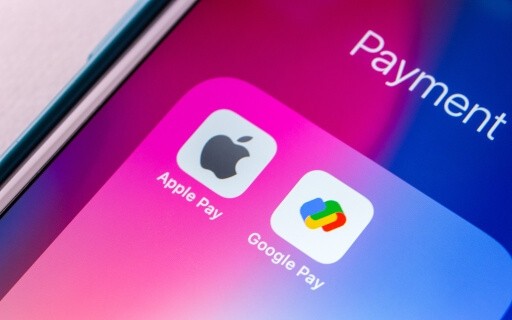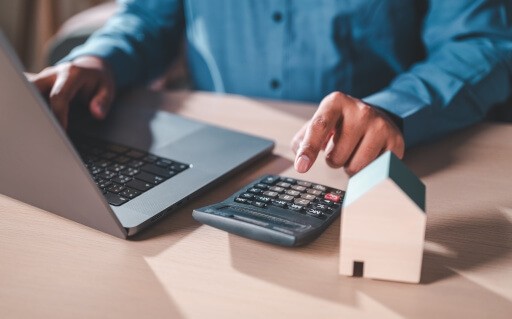
Timely rent payments are essential to the success of your rental business. While there are many qualities that make a great tenant, consistent late rent payments can directly impact your bottom line. With various payment methods available – from checks and credit cards to wire transfers and digital options – and different delivery methods to consider, establishing when rent is considered received is key to maintaining a smooth operation.
Specify Your Rent Due Date
Clearly defining your rent due date is essential to avoid misunderstandings and ensure timely payments. Include a straightforward, detailed clause in your lease that specifies the rent amount, payment due date, and acceptable payment methods. This is also the place to address what happens if the due date falls on a weekend or holiday.
You should also clearly outline how late rent payments will be handled, including any fees or penalties associated with them. Here’s an example of how you might phrase this in a lease agreement:
The Tenant shall pay the Rent in full on or before the first (1st) day of each month during the term of this Lease. Payment shall be made to the Landlord at ___ or any other location or manner specified by the Landlord, using one of the following methods: cash, check, e-transfer, or any other method approved by the Landlord.
If the Rent is not received in full by 5:00 PM on the fifth (5th) calendar day of the month, it shall be considered late. Late payments shall incur a late fee of ___, which will be due immediately along with the overdue Rent. Continued failure to pay Rent, including late fees, may result in additional legal action as permitted by law, including but not limited to eviction proceedings.
Choose Your Rent Collection Method(s)
Today, there are many ways your tenants can pay rent, from traditional methods like cash and checks to digital options such as bank transfers, online payment platforms, or even mobile apps. Each method comes with its own set of considerations that can impact when you receive a payment.
Receiving rent in person
If you require tenants to pay rent in person, the payment is only considered received when it is physically handed to you or delivered to your office, whether in cash or by check. To prevent any discrepancies or misunderstandings, always issue a receipt to tenants as confirmation of their payment.
Receiving rent by mail
If tenants mail their rent payment, you will need to define when the payment is considered to be received. For example, if your lease states that rent is due on the June 1st, most landlords would classify rent as received when the payment arrives to them by mail no later than June 1st. Alternatively, some landlords accept an envelope postmarked on June 1st, even though the envelope arrived on June 3rd.
The choice is yours, but keep in mind that many states prohibit charging late fees if the first falls on a holiday or Sunday and the payment could not be delivered on time. Make sure that any policies you set in place are in compliance with local and state laws and regulations.
Receiving rent electronically
If your tenants pay online through a payment portal or an automatic clearing house, you should receive an automated notification indicating the amount and date of payment.
With Apartments.com, tenants can securely and conveniently pay rent online using flexible options like credit cards, bank transfers, Apple Pay, or Google Pay. Tenants can submit payments manually each month or choose to set up autopay, helping tenants stay on schedule and ensuring you receive payments on time without hassle.
Receiving rent via bank transfer
If you allow tenants to pay rent via bank transfer, it’s important to be mindful of potential delays. While bank transfers are a fairly common payment method, they can pose challenges. Make sure your tenants are aware of bank hours and holidays, as these can affect processing times.
For example, if a tenant initiates a transfer on the first of the month, and it falls on a Friday, the payment might not clear until the following week, potentially making it late. However, if you and your tenant use the same bank, transfers are typically processed instantly, reducing the risk of delays.
A Grace Period for Rent Payments
It’s common for landlords to include a rent payment grace period in their lease agreements. This period typically ranges from three to seven days after the rent due date, allowing time for checks to arrive in the mail or payments to clear, and it gives tenants extra time to pay rent without incurring a penalty.
A five-day grace period, for example, means that rent due on the first day of the month wouldn’t incur a late fee until the sixth day. However, this does not change the original due date; rent is still considered due on the first. It’s essential to communicate this distinction clearly to tenants. Additionally, some states and cities have specific laws regarding grace periods, so be sure to review your local regulations before finalizing your lease terms.
Late Rent Fees
If tenants fail to pay rent by the specified received date, you should apply the late fees outlined in your lease agreement. Clearly define these fees in your lease, specifying how much will be charged per day after the due date. It’s essential to ensure that your fees comply with state and local laws, as some jurisdictions limit late fees to a percentage of the total rent amount.
Rent payments are fundamental to both your rental business and your relationship with tenants. To maintain clarity and consistency, your lease should thoroughly define how rent must be paid, when it is considered received, and what happens if it is late. Include details such as payment methods, deadlines, and any applicable grace period if one is provided or legally required. By doing so, you set clear expectations and create a process that helps prevent future late payments.
Managing rent payments doesn’t have to be complicated. Take control of your property management needs with Apartments.com, where you can securely handle rent payments, enforce lease terms, and simplify communication with tenants, all in one place. Start today and make managing your rentals easier than ever!
Originally published on November 12, 2024











